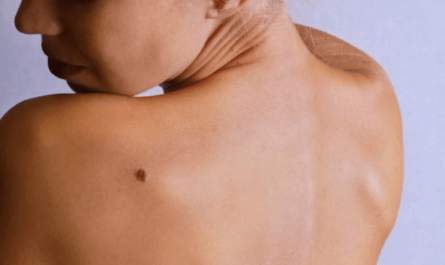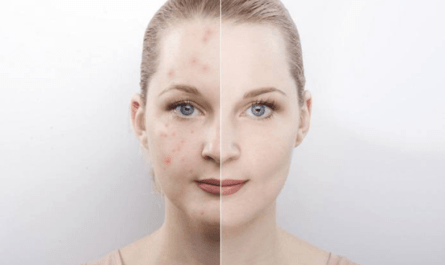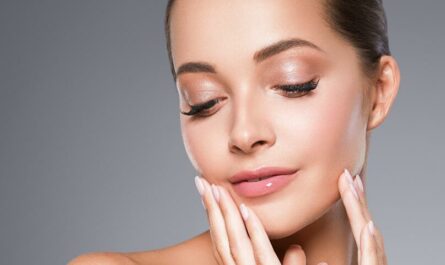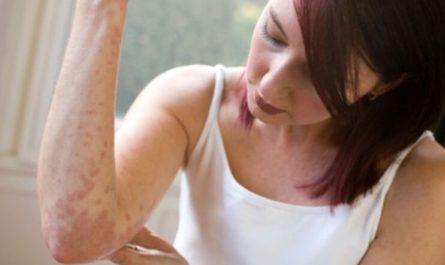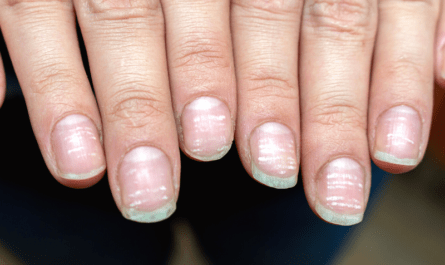Acne is one of the most common skin problems faced by people of all ages. It affects both men and women, and can range from mild to severe. Unfortunately, it can also be difficult to treat and may require professional help. However, there are natural solutions available that can help to reduce the appearance of blemishes. One such remedy is honey, which has been used for centuries as a natural remedy to help heal the skin.
Honey is a natural antiseptic with anti-inflammatory and antibacterial properties that make it a great choice for treating acne. Not only can it help to reduce the appearance of blemishes, but it can also help to prevent future breakouts. In this article, we will discuss how to use honey to remove acne and the many benefits it can offer.
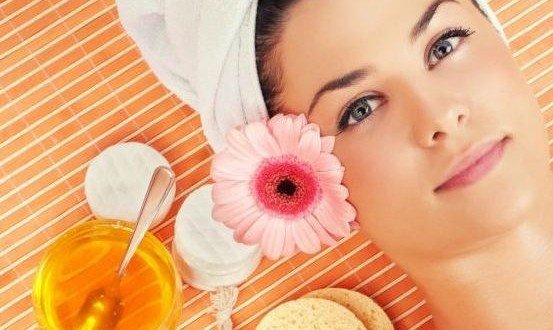
Common Causes of Acne
Knowing the common causes of acne can help you understand what is causing your acne, as well as help you prevent it from happening in the first place.
One of the most common causes of acne is hormonal imbalance. This is especially true in adolescents, as their hormones are still developing. Hormonal imbalances can cause an increase in oil production, leading to clogged pores and breakouts. Additionally, during times of stress, hormones can become imbalanced and cause an increase in acne.
Another common cause of acne is genetics. If a person has a family history of acne, they are more likely to develop it as well. Additionally, some people have naturally oily skin, which can also increase their risk of developing acne.
A third common cause of acne is poor hygiene. If a person isn’t washing their face regularly and using a gentle cleanser, dirt and oil can build up on the skin, leading to clogged pores and breakouts. Additionally, using harsh skin care products or scrubbing too hard can also lead to acne.
Finally, diet can also be a factor. Eating a diet high in processed foods and sugar can lead to an increase in inflammation, which can make acne worse. Additionally, eating foods that are high in dairy and refined carbohydrates can also lead to an increase in acne.
Why Honey Can Be Good for Treating Acne
Now that you know the possible causes of acne, you want to jump and get to know the possible solution: honey. Why is honey the most effective of all the home remedies for acne
Honey is considered a natural antibiotic. If your acne is already infected because of bacteria, you can quickly kill the bacteria with the simple use of honey. Honey also contains some anti-inflammatory properties that can reduce the size and swelling of your pimples, making them less visible.
Honey contains a lot of antioxidants which can be good for the skin. Antioxidants remove toxins from the skin and body that may cause premature skin aging and other blemishes. At the same time, honey also has many vitamins that the skin needs to glow. Unlike other remedies that you can try that completely dry the skin, honey can help moisturize the skin to keep it soft and glowing.
How Honey Can Be Good for Your Skin
Now that you know how honey can effectively treat acne, you would like to know how it can be good for your skin. Take note of the following points:
- If you are experiencing discomfort because of acne, you can expect that those discomforts will be reduced by placing acne on the affected portions of your skin.
- The antioxidants in acne work by reducing toxins in your skin and body and preventing the damage caused by free radicals. Free radicals can be found in the environment.
- You can expect that your wounds caused by acne will heal faster because of honey’s antiseptic properties. You may not know this, but honey has hydrogen peroxide to help heal the skin faster.
- Honey can also help remove acne scars from the skin. Some people do not have acne anymore but are plagued with scars. If you have imperfections due to acne, you can use honey to make them fade faster.
- Suppose you take in honey internally (as in, you would not only be putting it on your skin). In that case, there is a chance that you will boost your skin’s immunity so it will not be too sensitive to environmental factors that can cause skin irritation and acne.
Best Types of Honey to Use
If you look at specialty stores, you will notice different types of honey available. How can you possibly choose the one that will work best for you? Two kinds of honey are most recommended for acne healing: Raw Honey and Manuka Honey. Get to know the difference between the two below:
Unprocessed Honey
Bees naturally make this honey from the nectar of flowers they have collected. This type of honey has not been processed in any way. If you would buy processed ones, many of the benefits of honey are lost, and the taste may be enhanced.
You will know if you have raw honey by placing it in water. Place a teaspoon of the honey you purchased in water. If it dissolves, this is processed honey. If it goes directly to the bottom of the glass, you are in luck because you have raw and unprocessed honey.
Manuka Honey
While raw and unprocessed honey can treat acne, many experts say that Manuka Honey is even better. This is the type of honey taken by bees who only gather in Manuka bushes.
This type of honey is commonly found in New Zealand and Australia. The main reason why this is more effective than raw honey is its antimicrobial properties. You can be sure that this type of honey will significantly improve your skin condition. Remember that this is more expensive than raw honey, but it will be worth it once you see its effect on your skin.
How to Use Honey to Remove Acne Naturally
Now that you have enough knowledge about acne and honey, you can use honey to get rid of your acne and acne scars. Here are some of the things you can try:
1. Apply Raw Honey on Your Skin
The honey you may use for this is the usual raw or manuka honey, which can be very easy to use. Do the following:
- Place some honey on your palm and spread.
- Gently place the honey on your acne and acne scars and even on the surrounding skin.
- Leave the honey on your skin for about 30 minutes.
- Wash off the honey on your skin with warm water.
- How many times you need to do this in a week depends on your acne severity. If you have mild acne, you may do this twice a week, but do this every day if you have severe acne.
2. Cinnamon and Honey
You already know the different things that honey can do for your skin. Still, cinnamon can further improve the benefits because this can help unclog the pores and remove the bacteria causing acne to appear on your skin in the first place.
- Mix honey with cinnamon powder.
- Make sure that you will mix thoroughly before applying to the affected area of the skin.
- Leave on the skin for about 15 minutes.
- Rinse with warm water.
- If you have severe acne, you may also place it on your face overnight and rinse it with warm water in the morning.
3. Honey and Sugar as Scrub
There are times when the skin needs to be exfoliated with natural ingredients to eliminate the excess skin on the face that may be causing your acne. Mix honey with sugar, and you will get a sweet remedy for your problem.
- Mix honey and brown sugar together.
- Make sure the sugar is intact when applying it to the affected area.
- Gently massage your skin for about 3 – 4 minutes.
- Rinse off afterward with warm water.
- Use this scrub on your face about 2 – 3 times a week.
4. Strawberries and Honey
Strawberries are not only yummy but also contain Vitamin C and other antioxidants that can be good for the skin. The high amount of antioxidants in strawberries can help prevent acne breakouts, making your skin smoother and clearer.
- Make sure that your face is clean.
- Pat your face with a towel so it will dry before placing the honey and strawberry mixture.
- Apply the paste to the affected areas.
- Leave for almost half an hour.
- Rinse with warm water.
- Do not forget to put on moisturizer afterward because you must leave your skin soft and supple.
- Do this twice a week. You will start to see the difference in a month.
5. Oatmeal and Honey Scrub
As you know, oatmeal can be a very effective scrub for the skin. It is gentle enough that it will not harm the skin. At the same time, it can help exfoliate the skin while removing the excess oil left behind on your pores.
- Mix oatmeal and honey and add a bit of warm water.
- Apply the paste to the area with acne.
- Gently massage the affected area for about 5 minutes.
- After massaging, leave it on the skin for about 15 minutes.
- Rinse the scrub from the skin with warm water. Ensure that the water is only warm and not hot, as hot water may be harmful to people with sensitive skin.
- Do this regularly until you start seeing results.
6. Turmeric and Honey
You do know that turmeric comes with a lot of benefits. For the skin, it has anti-inflammatory properties that can effectively eliminate the bacteria causing acne. At the same time, this can help remove the discomfort you are feeling due to acne.
- Place a bit of honey and mix a small amount of turmeric powder.
- Put the paste on the acne and acne scars.
- Leave on the skin for half an hour.
- Rinse with warm water.
- Do not forget to apply moisturizer to make the skin soft.
- This needs to be done often to get the best results.
7. Apple and Honey as Mask
It can also be effective if you will use honey and apple together. Apple is known to have many benefits for the body, so mixing it with honey will be highly effective in getting rid of acne.
- Blend half of an apple. Make sure that you have removed the seeds beforehand.
- Add a couple of tablespoons of honey.
- Leave on the skin for 20 minutes.
- Rinse off with water.
- Make sure to do this once a week to get rid of acne.
Any of the methods that are mentioned above can be effective in getting rid of acne. Out of all the ways, which one is your favorite? Feel free to share the results you have received.

